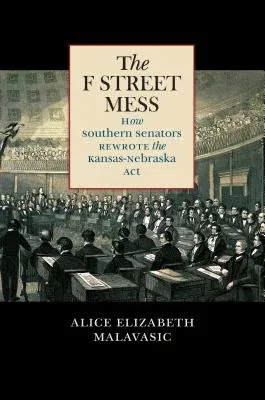Alice Elizabeth Malavasic
(Author)The F Street Mess: How Southern Senators Rewrote the Kansas-Nebraska ActPaperback, 20 November 2017

Qty
1
Turbo
Ships in 2 - 3 days
In Stock
Free Delivery
Cash on Delivery
15 Days
Free Returns
Secure Checkout
Part of Series
Civil War America
Part of Series
Civil War America (Paperback)
Print Length
280 pages
Language
English
Publisher
University of North Carolina Press
Date Published
20 Nov 2017
ISBN-10
1469635526
ISBN-13
9781469635521
Description
Product Details
Author:
Book Format:
Paperback
Country of Origin:
US
Date Published:
20 November 2017
Dimensions:
23.04 x
16 x
1.75 cm
ISBN-10:
1469635526
ISBN-13:
9781469635521
Language:
English
Location:
Chapel Hill
Pages:
280
Publisher:
Weight:
412.77 gm

